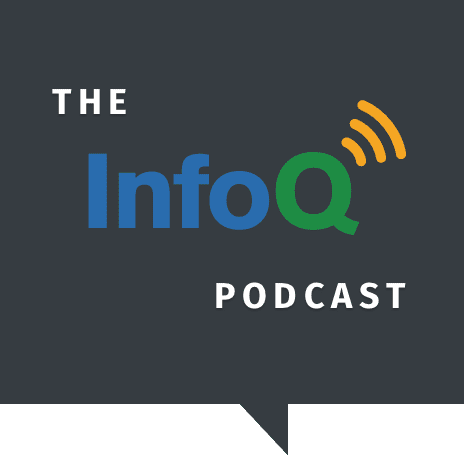InfoQ Homepage Podcasts
-
Elena Samuylova on Large Language Model (LLM) Based Application Evaluation and LLM as a Judge
In this podcast, InfoQ spoke with Elena Samuylova from Evidently AI, on best practices in evaluating Large Language Model (LLM) based applications. She also discussed the tools for evaluating, testing and monitoring applications powered by AI technologies.
/podcasts/llm-based-application-evaluation/en/mediumimage/Elena-Samuylova-interviewee-picture-1759238043300.jpg)
-
The Hidden Vulnerability of the Open Source Software Supply Chain: the Underlying Infrastructure
Software supply chain veteran Brian Fox unpacks the security implications of the new EU Cyber Resilience Act and its profound impact on open-source projects. He reveals the hidden infrastructure risks threatening open-source projects and shares insights for senior software leaders navigating this regulatory landscape.
/podcasts/open-source-software-supply-chain/en/mediumimage/brian-fox-interviewee-picture-1758721714264.jpg)
-
AI, ML, and Data Engineering InfoQ Trends Report 2025
In this episode, members of the InfoQ editorial staff and friends of InfoQ discuss the current trends in the domain of AI, ML and Data Engineering. One of the regular features of InfoQ are the trends reports, which each focus on a different aspect of software development. These reports provide the InfoQ readers and listeners with a high-level overview of the topics to pay attention to this year.
/podcasts/ai-ml-data-engineering-trends-2025/en/mediumimage/Podcast-AI-ML-Data-Engineering-Trends-Report-interviewee-1757938876018.jpg)
-
Scaling Systems, Companies, and Careers with Suhail Patel
In this episode, Suhail Patel joins Thomas Betts for a discussion about growing yourself as your company grows. When he started at Monzo, Patel was one of four engineers on the then new platform team–there are now over 100 people. The conversation covers how to thrive when the company and the systems you’re building are going through major growth.
/podcasts/scaling-systems-companies-careers/en/mediumimage/suhail-patel-interviewee-1756990236399.jpg)
-
Safely Changing Software to Avoid Incidents: a Conversation with Justin Sheehy
In this podcast, Michael Stiefel spoke with Justin Sheehy about how to safely put software into production without creating production incidents. Among the topics discussed were the futility of root cause analysis, and the importance of having a shared language for discussing incidents. This discussion included the need for software to be malleable as well as observable.
/podcasts/safely-changing-software-avoid-incidents/en/mediumimage/justin-sheehy-interviewee-1753191541183.jpg)
-
Building Engineering Culture Through Autonomy and Ownership
In this podcast Shane Hastie, Lead Editor for Culture & Methods spoke to Marcos Arribas about building and scaling engineering culture as an organisation grows, emphasizing autonomous teams, ownership mentality, progressive feature rollouts with flags, small pull requests, strategic AI adoption, and the importance of hiring junior engineers for long-term organizational growth.
/podcasts/engineering-culture-autonomy-ownership/en/mediumimage/marcos-arribas-interviewee-photo-1759219964258.jpg)
-
How Blameless Culture Transforms Engineering Teams
In this podcast Shane Hastie, Lead Editor for Culture & Methods spoke to Tameem Hourani about building a blameless engineering culture through radical transparency, focusing on system resilience over individual blame, and creating high-performing teams that can embrace change and learn from failures.
/podcasts/blameless-culture-transforms-engineering-teams/en/mediumimage/tameem-hourani-interviewee-1758539995149.jpg)
-
The Myth of 100% Utilization: The Neuroscience of Productive Teams
In this podcast, Shane Hastie, Lead Editor for Culture & Methods, spoke to Shannon Mason about optimizing team productivity by understanding the neuroscience behind cognitive load, distinguishing between beneficial "slack time" and detrimental "idle time", and how the pursuit of maximum utilization that leads to burnout and poor decision-making.
/podcasts/neuroscience-productive-teams/en/mediumimage/shannon-mason-interviewee-1757933376136.jpg)
-
Why Software Development Sucks And 7 Mental Models To Help Fix It
Shane Hastie, Lead Editor for Culture & Methods, spoke to Thanos Diacakis about how teams often struggle with software delivery. He proposes a shift in mental models and a four-step framework to systematically improve software development by focusing on bottlenecks, balancing different types of work beyond just feature delivery, and investing 20-30% of effort in improving how the team works.
/podcasts/software-development-sucks-mental-models/en/mediumimage/thanos-diacakis-interviewee-1757334515552.jpg)
-
The Evolution of Code Review: From Bug-Finding to Team Building
In this podcast, Shane Hastie, Lead Editor for Culture & Methods, spoke to Greg Foster about the evolution and purpose of code reviews, building teams with kindness, expertise, and urgency, and how AI tools are changing software development.
/podcasts/evolution-code-review-bug-finding/en/mediumimage/greg-foster-interviewee-1756728305842.jpg)

